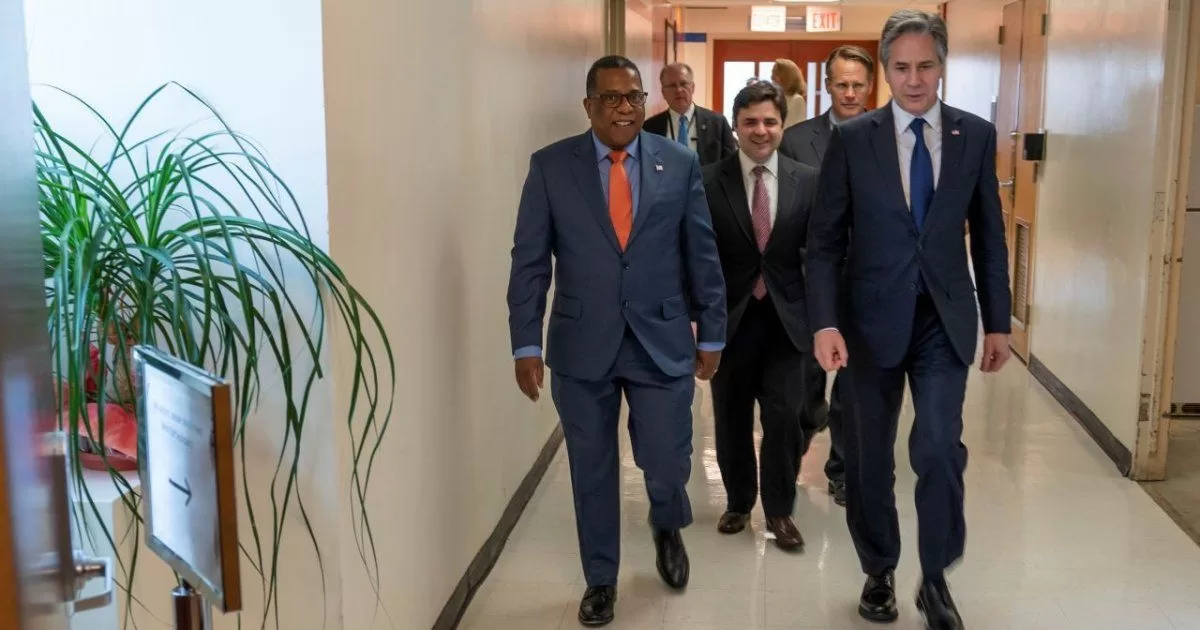Gianluca Vialli and Roberto Baggio in their golden days as a player
Gianluca Vialli, attacker for Italy in the 1986 and ’90 World Cups, who died on Friday at the age of 58 from pancreatic cancer, was asked in one of his last interviews what he would say in his first talk to a team of children from twelve years old.
And he replied: “That by playing soccer you learn many important things in life. Soccer helps you get to know yourself and others. Teach to share everything, joys and sorrows. With soccer you learn to be in a team. You learn the value of friendship, because those you hang out with as a child will stay with you forever. Soccer is a joyous competition. But to experience joy you have to sacrifice yourself.”
The friendship he experienced especially with Roberto Mancini, DT of Italy, but an old teammate at Sampdoria that moved football three decades ago, a second-order club from Genoa, which reached the Champions League final in 1991. They were both so essential to the team that the club’s president, Paolo Mantovani, had two dogs: one he named Roberto, the other Gianluca. Vialli once recounted that they both escaped from concentration and put pillows under the sheets.
That friendship with Mancini (“my brother”) is seen in the photo that the networks went viral these hours, both hugging after Italy’s victory against England in the 2021 Euro Cup. It was an eternal hug between DT (Mancini) and the boss delegation (Vialli), with the latter already aware of the disease that would end his life.
Vialli resigned from that position last December, when cancer was already announcing discount time. He died in London (he left behind a wife and two daughters), after 17 months of chemotherapy sessions and an operation. In English football he had started a new life, in the early years almost a pioneer in the role of player-DT at Chelsea.
Born into a wealthy and conservative family in Cremona, fifth son, title of surveyor, Vialli began playing soccer with the priests in the courtyards of the churches (“the condition was that he also went to catechism classes”), a challenge for his social class. “Football players,” he once said, “we are quite ignorant, but it must be said that many are forced to leave home very early.” With soccer, it is clear he did not do badly.
The statistics indicate 259 goals in 673 games for Juventus, Inter, Cremonese, Sampdoria and Chelsea, and 59 games and 16 goals between 1985 and 1992 with the Italian team. And a total of 15 titles, including two in Serie A, and one Champions League and one European Super Cup. As Chelsea manager, he added three more titles and left an unforgettable memory when, before a final, he uncorked champagne and invited his players to relax, to enjoy what they were about to play. Unthinkable in today’s football.
He also played two World Cups. In Mexico 1986 he surrendered at the feet of Diego Maradona (“the biggest rival I ever faced”) and in 1990 he suffered the “cunning” of 10, when he asked the Neapolitans (that semifinal was played at the San Paolo) to remember that Italy had always “despised” them and now asked them to support the “Azzurra”. “Diego had been very cunning, he had flattered the pride of the Neapolitans,” said Vialli, who recalled a stadium with “an unreal atmosphere.”
“With Diego,” he said in an interview, “I always had a splendid relationship. I was thrilled to be a part of his magic, even as an adversary.” They met again one night in August 1996, in a VIP restaurant in London, Diego effusive as always, he more discreet, as if listening to the stories of 10 with delight.
Vialli was also part of the time when “calcio” was the mecca of football (what is today the Premier League), with money of dubious origin that signed all the cracks (Maradona, Zico, Platini, Gullit, Van Enough, etc.). An era that ended with the powerful Juventus of the Agnelli family descended to Serie B, accused of corrupting referees and doping their players. Vialli was part of that team, which featured Zinedine Zidane.
Since he spoke publicly about his illness a few years ago (first he hid it from his own family), Vialli began to reflect and was sure that he would not die of old age, as he told his own daughters. He said that he was not fighting “a battle” against cancer, “because it is too big and powerful an enemy.” He defined cancer as “an unwanted travel companion until, hopefully, he gets bored and dies before me.” He knew it wouldn’t.


